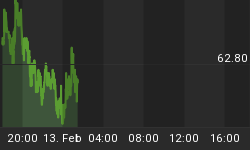In recent years, Big Tech and Big Oil have emerged as some of the biggest buyers of renewable energy, with dozens now covering a substantial proportion of their energy needs through renewables.
In 2019, Alphabet Inc.'s (NASDAQ:GOOG) subsidiary, Google Inc., signed contracts to purchase over 2.7GW of clean energy globally, the biggest clean energy commitment by any company on the planet. In fact, Google's total renewable energy purchases now exceed the amount of electricity the company uses in its operations, including its power-hungry data centers, making the company one of the first tech heavyweights to go 100% green.
But with the greening of the global corporate sector now in overdrive, another tech giant has leapfrogged Google as the biggest buyer of clean energy: Amazon Inc. (NASDAQ:AMZN).
According to clean energy watchdog Bloomberg New Energy Finance (BNEF), global corporations purchased a record 23.7GW of clean power through Power Purchase Agreements (PPAs) in 2020, 18% more than they did in the previous year. But no company purchased more than Amazon, which inked 35 contracts covering 20% of those megawatts.
Amazon has a goal to be fully powered by renewables by 2030.
Robust clean energy demand
Currently, there are 280 global companies that have joined the RE100 club i.e., companies that have committed to source 100% of their energy needs from renewable sources at some point in the future. That's a 26.7% increase from last year's tally of 221 members.
Even more encouraging: More than half of global CO2 emissions are now covered by some form of net-zero target.
Indeed, 2020 proved to be a defining moment in the clean energy transition.
At the beginning of the year, just 34% of global emissions were covered by a net-zero target; however, that figure ballooned to 54% by the turn of the year, a truly exceptional additional commitment despite the pandemic.

Other tech bigwigs have become big buyers of renewable energy, too.
Facebook Inc.(NASDAQ:FB) has the third-largest commitment (1.1GW), while Microsoft has committed to at least 0.8GW.
Amazon has revealed plans to invest in four new renewable energy projects to support the company's objective to achieve 80% renewable energy by 2024 and 100% renewable energy by 2030.
Google has signed up to $2bn wind and solar investments with plans to use the clean energy to power its massive data centers.
These four internet giants operate massive, power-hungry data centers that have been blamed for their copious greenhouse gas emissions. It's, therefore, probably not surprising that they are putting some effort into ameliorating at least some of the damage.
Big Tech might be a trailblazer in the renewable energy space at the moment, but Big Oil might soon rival it.
Occidental Petroleum (NYSE:OXY), Chevron (NYSE:CVX) and Energy Transfer Partners (NYSE:ET) all signed solar contracts in 2019, following in the steps of ExxonMobil (NYSE:XOM), which signed several large PPAs in 2018.
Back in November 2018, Exxon signed a PPA with Danish utility Ørsted (CPH:ORSTED) that will see the oil major buy 500 MW of wind and solar power from Ørsted's parks in Texas for the operations of its Permian Basin oil fields.
Last year, Occidental announced the start-up of its 16-MW solar park in Texas as well as the signing of an off-take contract for an additional 109 MW of solar power.
In the same year, Chevron announced that it had signed a 12-year PPA with a wind farm in West Texas to purchase 65MW of wind energy.
Meanwhile, pipeline company Energy Transfer LP (NYSE:ET) agreed to a 15-year PPA deal with Canadian Solar's (NASDAQ: CSIQ) wholly-owned subsidiary, Recurrent Energy, LLC for the construction of a 28 MWac Maplewood 2 Solar Project. The PPA marked Energy Transfer's first-ever dedicated solar contract.
Still, there's a lot of ground to cover.
BNEF says that sustainability commitments as well as the powerful ESG megatrend will ensure that clean energy procurement from corporations continues to thrive. In fact, the energy watchdog estimates that RE100 companies will need to purchase an additional 210TWh of clean electricity in 2030 to meet their net-zero targets, which in turn will catalyze an estimated 105GW of new solar and wind build globally and nearly $100B in clean energy infrastructure.
The lack of well-established PPA markets outside the U.S., EU, and China makes this an uphill climb, though tech companies have been among the first to pressure policymakers in countries where they have operations or supply chains, like Taiwan, to streamline the process.

















